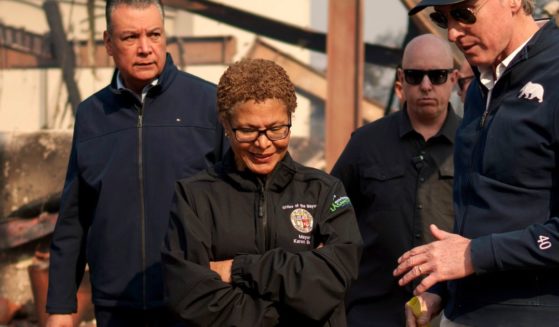New York Times Announces Podcast Blaming 'Nice White Parents' for Downfall of Public Schools
White parents matter, or so The New York Times proclaims as it announces a new series of podcasts critically examining the role of white parents in the widespread failure of public education.
The podcasts are titled “Nice White Parents” and are the work of Serial Productions. Serial recently was bought by The Times, according to Deadline.
The limited scope of the podcasts — which will debut July 30 — is shown in a promo for the series, in which it says “Nice White Parents” is “about the 60-year relationship between white parents and the public school down the block.”
That would put the starting date for the series at 1960, or just after the dawn of the civil rights movement.
The Times gets to the role of white parents obliquely by first noting that “We know that American public schools do not guarantee each child an equal education — two decades of school reform initiatives have not changed that. But when we look at how our schools are failing, we usually focus on who they’re failing: Black and brown kids. We ask: Why aren’t they performing better? Why aren’t they achieving more?”
Then comes the zinger.
“Those are not the right questions. If you want to understand what’s wrong with our public education system, you have to look at what is arguably the most powerful force in our schools: White parents.”
The blurb promoting the podcasts stops short of an indictment, but an audio trailer narrated by Chana Joffe-Walt, who assembled the podcasts, cites a 1963 episode in which white parents in New York City wanted a new school built so that students of all races could attend.
Joffe-Walt noted that after a massive fight to build the school where white parents wanted it, “none of them sent their kids there.”
The audio quotes what presumably is a parent saying she did not want to “sacrifice” her children by sending them there. Other parents quoted in the audio file noted there was a gap between what ideas they said they would support and which ones they actually do.
“For years I’ve been looking for an answer to the question: Why don’t public schools work better? What is getting in the way of giving each child an equal opportunity, an equal education?” Joffe-Walt said.
“But now, I think I have been looking in the wrong places for what’s broken in our schools. I think you can’t understand what’s broken if you don’t look here at one of the most powerful forces shaping public education: white parents,” she said.
The point has been made before. A study that came out in February from the group Making Caring Common, housed at Harvard University, said that although parents value integration in theory, when picking schools for their own children, they value school quality and safety over racial and economic balance, according to U.S. News & World Report.
“In some ideal sense, the great majority of parents do want to send their kids to integrated schools,” says Eric Torres, co-author of the report. “But when parents are faced with choices that they feel pit these priorities, they tend to choose the things that they believe are most important for the success of their own children.”
Nikole Hannah-Jones, who collaborated with Joffe-Walt in a project The Times said laid the foundation for “Nice White Parents,” accused white families of promoting inequality in an interview with The Atlantic.
“White communities want neighborhood schools if their neighborhood school is white,” she said. “If their neighborhood school is black, they want choice.”
Hannah-Jones said the goal of the public school system is not to provide an equal education for all students.
“We have a system where white people control the outcomes, and the outcome that most white Americans want is segregation,” she said.
“Our public schools are not broken but are operating as designed. Our public schools were set up to provide unequal, inadequate education for black children. So that’s what they do,” she said.
Truth and Accuracy
We are committed to truth and accuracy in all of our journalism. Read our editorial standards.
Advertise with The Western Journal and reach millions of highly engaged readers, while supporting our work. Advertise Today.












